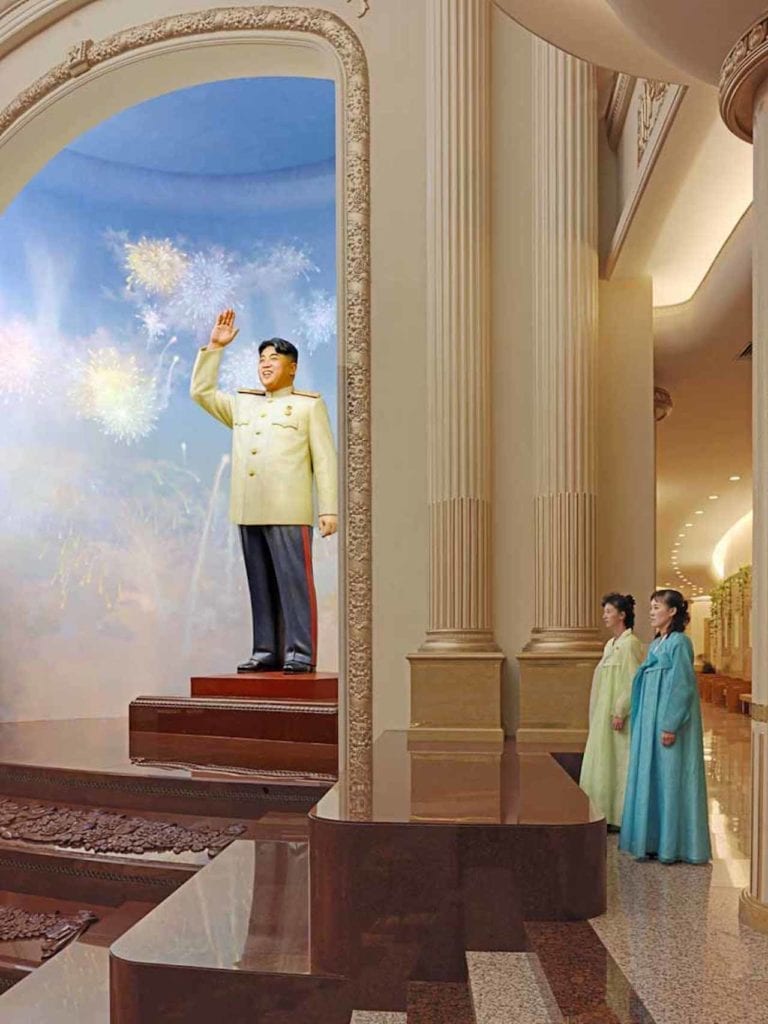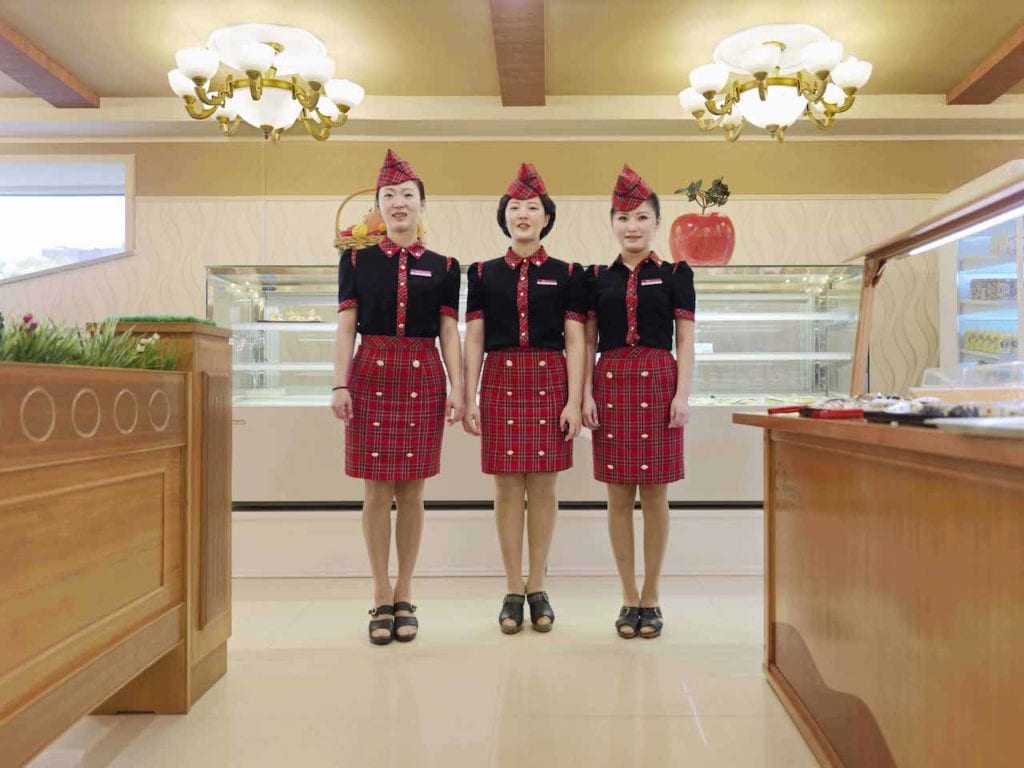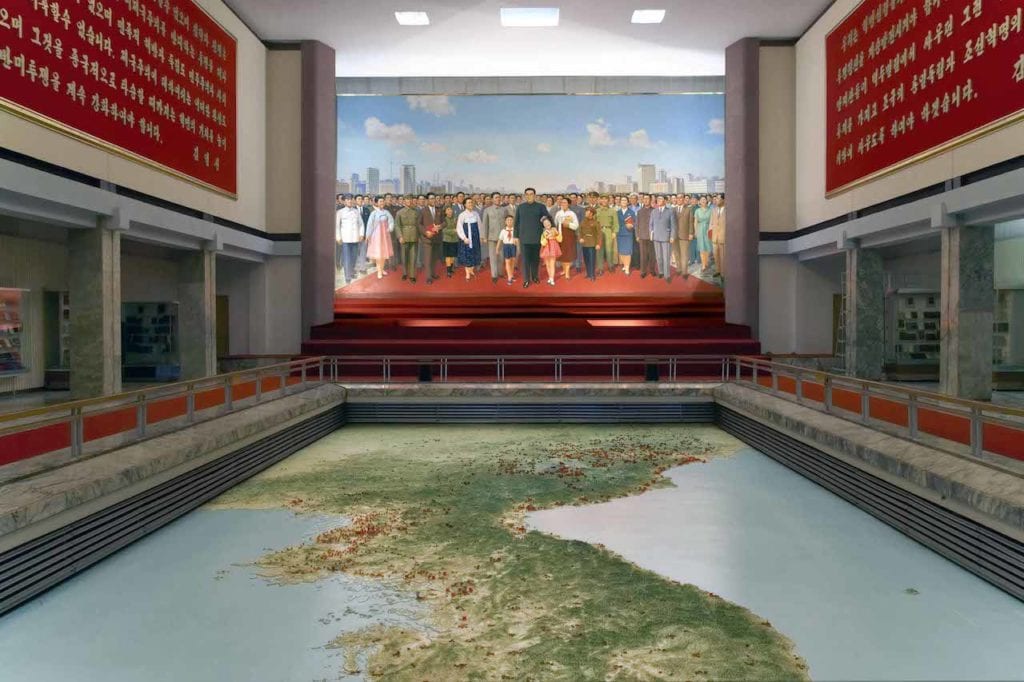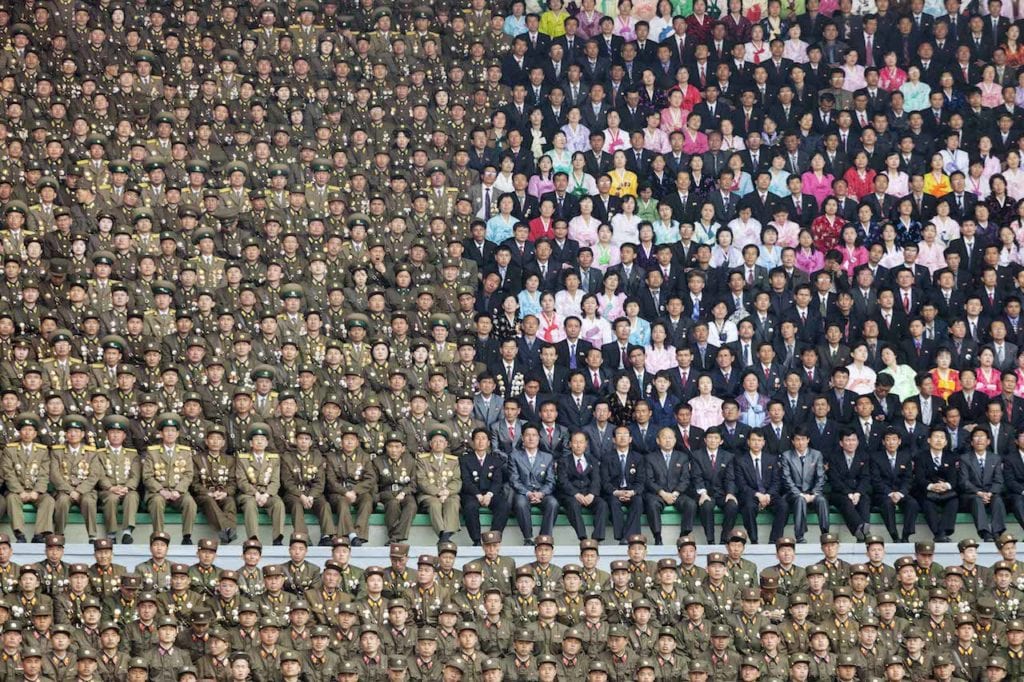“North Korea is still a mystery to me,” says photographer Philippe Chancel, who, between 2005 and 2014, visited the country seven times. “Everything seems both real and unreal.”
When Chancel begin making photographs in his early 20s, he was interested in “what was hidden and what was difficult to access.” From 2005 onwards, the photographer was able to gain repeated access to North Korea due to his work being considered art rather than photojournalism. “They loved my purpose because they could not see how these images might be interpreted from a Western point of view.”
Chancel’s series, Kim Happiness, is now on show as part of a group exhibition at Belfast Photo Festival. The theme of the festival is Truth and Lies, a notion that has been a concern to Chancel throughout his career. When he started out in photojournalism in the 1980s, he was fascinated by communism, and his main goal was to “get a glimpse behind the iron curtain”.
But, after photographing in the USSR, Chancel felt he needed to take a step back. “It made me paranoid,” he explains. “I needed to stay away from this fascination I had, but a little part of me thought, maybe one day I will be able to access the last communist country in the world, North Korea.”
And a decade later, he did. Chancel was granted exclusive access to festivals, marches, and even inside schools, offices and official buildings, publishing his first book of photographs from North Korea, DPRK, with Thames & Hudson in 2006. He then photographed the intensely choreographed, dynamic and colourful spectacles of North Korean dance ceremonies, titling the project Arirang and publishing it in 2008 with Éditions FAVRE.
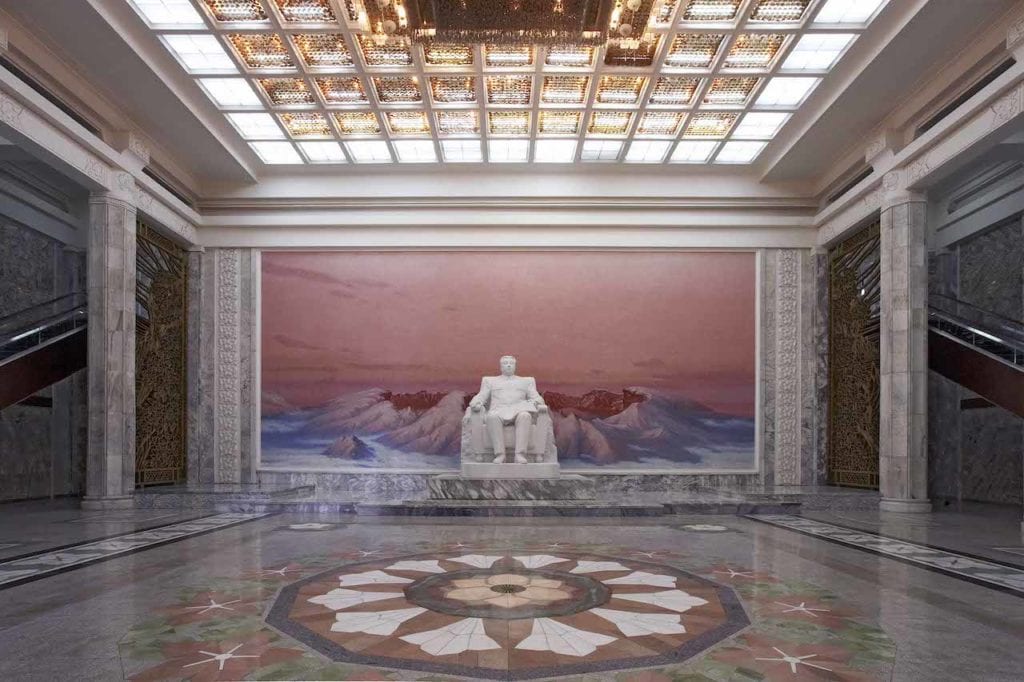
But even after all of these visits, the photographer found that the same key questions remained unanswered. What is real, and what is propaganda? “I like the idea that documentary photography should question reality, pop the bubble, and make way for another destination for the viewer,” he says.
In Kim Happiness, Chancel asks whether it is ethical to enjoy the aesthetics of an image, knowing that this beauty could be masking the suffering of a nation of people. “In North Korea, the most interesting things are what you can’t see,” says Chancel. “There are preconceptions when we look at images from North Korea. If we see a smile, we may think it is forced, but really there is no way of knowing what these people are really feeling.”
The people that Chancel met were curious, and educated, but of course, they were guarded. “I felt that sometimes people were looking at me through a shield,” he says.
Kim Happiness by Philippe Chancel will be shown as part of a group exhibition titled Do Governments Lie? The exhibition is on display at Belfast Photo Festival from 06 June until 30 July 2019
